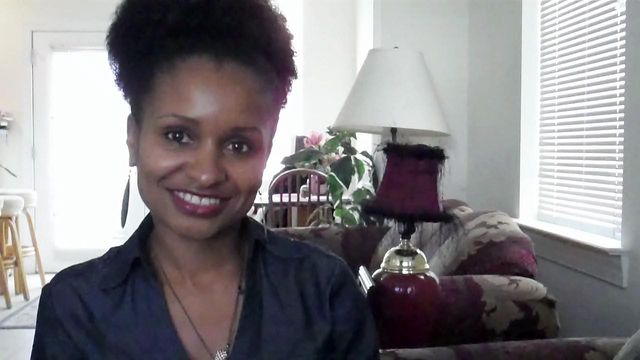After son's autism diagnosis, mom finds voice for her son, other families
Shock and 'why me,' were Rasheeda McAllister's first reactions when her son was diagnosed with autism 13 years ago. Since then, she's found new purpose, pushing for inclusion programs for kids like her son.
Posted — UpdatedBraxton Alford seemed to be hitting all the milestones 13 years ago when his preschool teacher started to note some changes.
It's a shock when you hear anything may be potentially wrong with your child, his mom Rasheeda McAllister tells me. But more than a dozen years ago, the disorder wasn't getting the same kinds of headlines that it gets today.
"I don't know I ever heard the word autism before that time," she tells me. "It was something that was unfamiliar to me, to my family. What we had to do was go out and do our own research, trying to find resources, support systems."
McAllister started searching for support groups and other ways to connect with professionals and parents who have children with autism. The family, which now includes 11-year-old Jocelyn, eventually moved from Southern Pines to Raleigh where there were more resources for kids like Braxton.
As she learned more about the disorder and how best to raise her son, McAllister realized that what he really needed was to be included in activities and programs with typically developing kids. That drive to push for inclusion programs was inspired, in part, by a question her daughter asked her as they made summer camp plans. There were few programs that accepted both her daughter and her son.
"My daughter was "why can't Braxton be with me? We're together at home," McAllister said. "There's no explanation."
During the school day, Braxton, now a ninth grader, is in a self-contained classroom where he can get the support and instruction that he needs. But McAllister worked to find camps and afterschool programs where Braxton could be included with other kids.
"In the summer time and after school, I feel like they should just be able to join the rest of the population," she said. "... At the end of the day, we all have to live on this earth together."
Braxton was one of the first to attend camps that include both kids with special needs and typically developing kids at the YMCA of the Triangle, thanks in part to the National Inclusion Project. Braxton first started attending summer camp at the A.E. Finley YMCA in north Raleigh.
McAllister said the experience has meant the world to her son, but it's also had a big impact on the other campers, who argue over who can be his helper each day, rush to give her reports of his day at camp and give him high fives when they run into each other around town.
"When you first hear the news [that your child has autism], as any other person, you first think, 'why me?' And that sounds so bad," McAllister said. "But as the years have progressed on, I’ve been able to communicate and talk with other families and support them .... It’s not so much 'why me.' I understand now that maybe I’m here to give a voice to families with children with special needs."
These days, Braxton loves playing the drums, listening to music and playing basketball. And he gets frustrated with his mom when she's hovering too much. In other words, he's a lot like your average 16-year-old.
"I want people to see these individuals like who they are," McAllister tells me. "They are artistic individuals. They are loving individuals. I have one big pet peeve and people may not know it. They'll say "this autistic child." My thing is, they are people first. You say 'the child with autism.' The 'child with Down syndrome.' I just like them to know that they are people first and not their disability."
"... Life is great," she said. "I finally realized that instead of me trying to change my son to conform, just let him be how he is and people will love him still the same."
McAllister is getting ready for the Autism Society of North Carolina's Run/Walk for Autism on Oct. 12. For the last several years, she's fielded Team Braxton to raise money for the nonprofit, which supports and provides resources for families and children with autism. She is passionate about the work the group does.
McAllister said it's important to get the word out about autism, especially to show people what autism looks like.
"Just to let people know that they are people and all it takes is to get to know one of them and you'll see," she said. "They really do touch your heart."
Related Topics
• Credits
Copyright 2024 by Capitol Broadcasting Company. All rights reserved. This material may not be published, broadcast, rewritten or redistributed.





